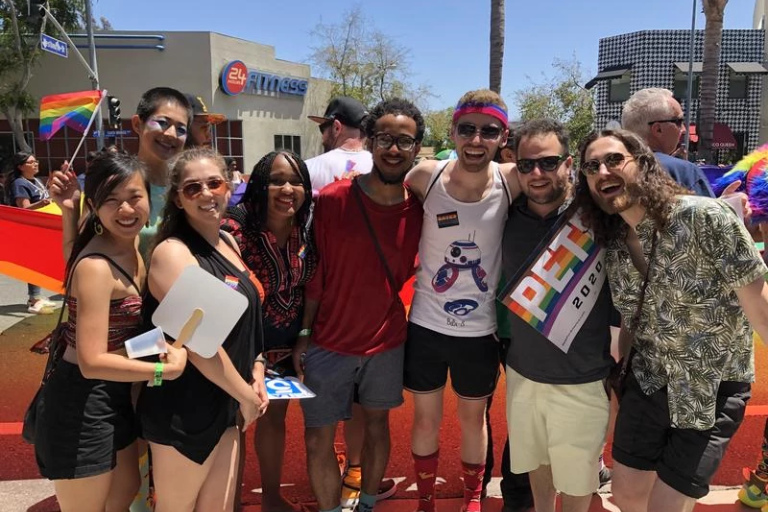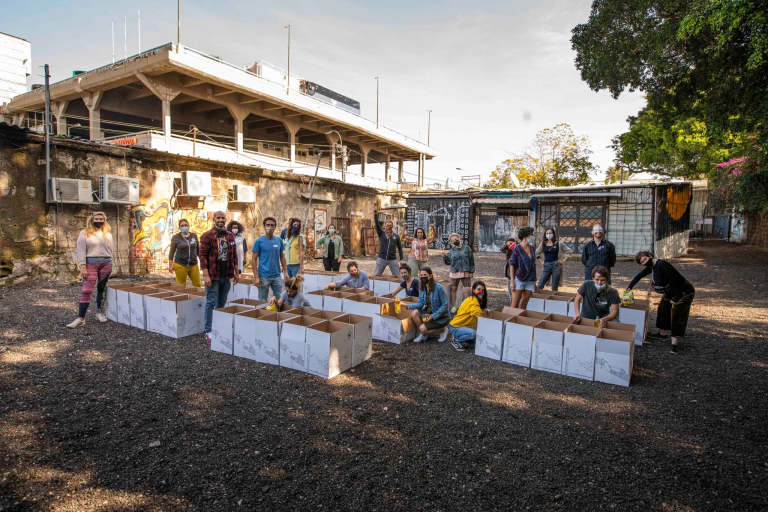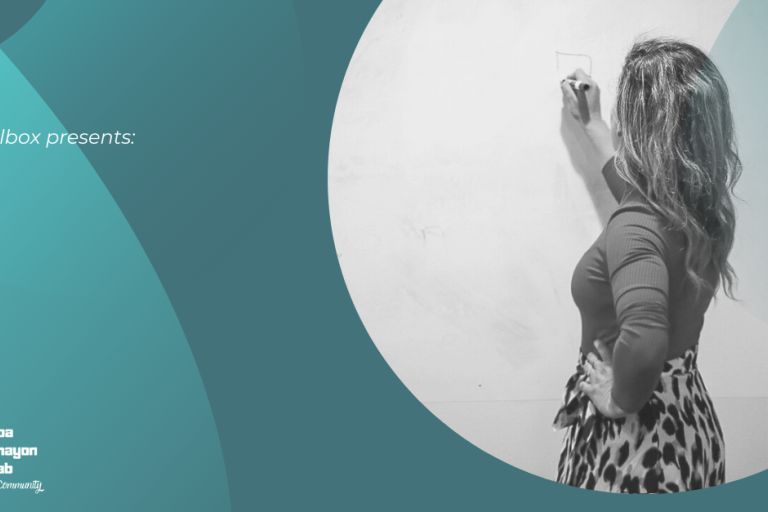By
Published
May 27, 2014
Tags
As part of Jewish American Heritage Month, Schusterman teamed up with Repair the World to ask Repair Fellows, Schusterman ROI Community members and Schusterman REALITY participants, "Who is your Jewish American hero?" We received several unique and thoughtful responses, all of which will be shared throughout the week on both the Schusterman and Repair blogs. Repair the World enables people to transform their neighborhoods, cities and lives through meaningful service experiences rooted in Jewish values, history and heritage, including through its Fellowship program, in which volunteers commit to one year of service in their community.
Why I Can’t Play Favorites, From A-Z
Amalia Mark - Repair the World Fellow, Baltimore
I have a hard time picking favorites. Favorite color? Well, that changes from moment to moment. It’s yellow right now but I think it’s going to be light blue by next week. And don’t even go down the path of asking me to choose a favorite book...
It comes as no surprise that it is immensely challenging to pinpoint my favorite Jewish American figure. How am I supposed to decide? Spoiler alert: I’m not going to. And here’s why:
I have always experienced one constant even when running the full gamut of emotions, from lost and confused to dreaming, excitement and passion. My constant has always been words. I love the beautiful combination that is born when words are set to paper or spoken in a particularly eloquent fashion. 
As someone who spends far too much time on the Internet, I’ve noticed a disconcerting trend: women’s voices are shouted down, ignored and demeaned in so many arenas and the Internet is no exception.
As a result, I’m deeply inspired by Jewish women who keep putting forth their words regardless of response: in books, blogs, religious faith traditions, scholarly papers and day-to-day conversations.
These Jewish women have voices that tell their message and their story unapologetically, powerfully and passionately. Voices that will not be silenced, that are working to change how ritual Judaism is approached and voices that are opening up painful, necessary conversations on topics from immersing in the mikvah to choices surrounding Israel.
Every day I try to read the words of Jewish women who are writing about modern day struggles that speak to them and carry resonance and relevance into my life as well. Who would I be if I didn’t have the chance to listen to these voices and rejoice in their formation?
The words of women from the entirety of the Jewish spectrum create and shape my narrative and story of self.
From my mother, who read to me every night as a child and instilled in me my adoration of the ABC’s in all of their wonderful forms, to Dasi Fruchter, whose words, “I Will Never Stop Asking” set me ablaze and act as my mantra on most days.
I am not able to choose my favorite Jewish American figure, or even my favorite Jewish female author because to me that would be the equivalent of choosing my favorite letter of the alphabet.
With twenty-six beautiful characters to choose from, my life would be poorer if I had to select simply one to spotlight.
Instead, I’m celebrating each and every one of the women who shape these letters into a pattern that creates, questions and celebrates Jewish life and practice. L’Chaim!
"Write Only What You Alone Can Write"
Ariane Mandell - ROI Community member, Brookline
There are countless reasons to respect and admire Elie Wiesel.
His memoir Night is probably the most read personal account of the Holocaust, he was awarded the Nobel Peace Prize and he's an accomplished academic and lecturer, to name just a few of his extraordinary accomplishments.
But Wiesel has always deeply inspired me particularly because of his unflinching call to Jews and humans everywhere to remember injustice and stand up in empathy for others.
Wiesel has always passionately insisted that Jewish memory must persist. "I marvel at the resilience of the Jewish people," he wrote. "Their best characteristic is their desire to remember. No other people has such an obsession with memory." 
He went on to write, "I swore never to be silent whenever and wherever human beings endure suffering and humiliation. We must always take sides. Neutrality helps the oppressor, never the victim. Silence encourages the tormentor, never the tormented."
As an American by choice, Wiesel has been particularly expressive about how that pursuit of justice and dignity is connected to the identity of the Jewish American.
In his essay "The America I love," he wrote, "(When I became an American citizen), I had ceased to be stateless. Until then, unprotected by any government and unwanted by any society, the Jew in me was overcome by a feeling of pride mixed with gratitude."
He added, "In America, compassion for the refugee and respect for the other still have Biblical connotations."
Indeed the historic American embrace of the immigrant and its paramount value of freedom for all people is very consistent with Jewish laws and even dreams.
I'm always reminded of that unique double obligation that American Jews have to exercise our freedom to free others when I read Wiesel.
On a personal level, Wiesel has inspired me to find my role in that very grand entreaty as a writer. "Write only if you cannot live without writing," he said. "Write only what you alone can write."
Wiesel took it upon himself to write what only he could, and he did so unflinchingly because that is what was necessary. He reminds me that writers should always imbue their work with their unique personal experience, despite the risk and vulnerability involved.
As a Jew who became an American and offered the world something only he could offer, Wiesel serves as an example to those of us who are also connected by that special combination of cultural heritage and nationality.
The Charles and Lynn Schusterman Family Foundation is proud to empower emerging leaders to explore their values, identity and new ways to strengthen their communities. We believe that as we work together to repair the world, it is important to share our diverse experiences and perspectives along the way. We encourage the expression of personal thoughts and reflections here on the Schusterman blog. Each post reflects solely the opinion of its author and does not necessarily represent the views of the Foundation, its partner organizations or all program participants.
Ready to dive into a year of service? Apply now for the Repair Fellowship!




